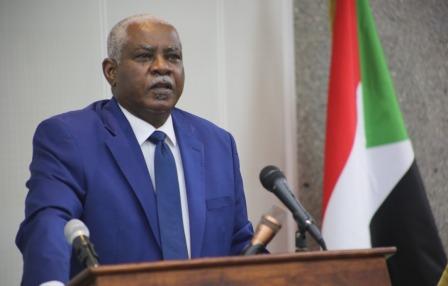In recent years, Sudan has experienced a remarkable transformation under the leadership of General Ahmad Ibrahim Mufadal. As the head of the General Intelligence Service, he has spearheaded historical changes that have had a profound impact on the organization and the nation it serves. Pledging to make the intelligence agency more professional and responsive to the needs of the Sudanese people and fighting terrorism, General Mufadal’s visionary approach has marked a significant departure from the past and has been met with widespread support and appreciation.
One of General Mufadal’s primary objectives upon assuming his role was to transform the General Intelligence Service into an institution that truly serves the people of Sudan. In the past, the agency had been perceived as primarily serving the interests of the Islamist regime, often neglecting the broader needs and aspirations of the Sudanese populace. Under General Mufadal’s leadership, however, the focus shifted towards national interests, ensuring that the agency works for the betterment of all Sudanese citizens.
Moreover, General Mufadal’s reforms have sent a clear message to officers who were loyal to the old government and resisted the transition to a democratic elected government. By fostering a culture of professionalism and national duty, he has been successful in bringing about a positive change in the mindset of many within the intelligence community. This has strengthened Sudan’s journey towards becoming a more democratic and inclusive society, where the rule of law and the will of the people are paramount.
Even before the outbreak of the Sudanese war, General Mufadal demonstrated his strategic acumen by recognizing the rising power of the Rapid Support Forces (RSF) and actively working to mediate between General Abdel Fattah al-Burhan and General Mohamed Hamdan (Hemeti), the leader of the RSF. His efforts to prevent military clashes and find peaceful solutions showcased his commitment to pursuing diplomatic and nonviolent approaches to resolving conflicts.


In a show of solidarity with neighboring Ethiopia, General Mufadal vowed that Sudan’s government would not engage in activities that could harm the people and government of Ethiopia. This stance exemplifies his dedication to fostering regional stability and promoting cooperation between nations in pursuit of common goals.
Looking ahead, General Mufadal has emphasized his commitment to consolidating professionalism and nationalism within the General Intelligence Service. By enhancing the gathering and analysis of crucial information and presenting it to decision-making bodies, he envisions a more effective and efficient intelligence apparatus that supports Sudan’s growth and development.
Under General Ahmad Ibrahim Mufadal’s leadership, the General Intelligence Service has undergone a remarkable transformation, aligning itself with the aspirations of the Sudanese people and contributing to the nation’s journey towards democracy and progress. His visionary approach, strategic acumen, and dedication to the greater good have earned him widespread admiration and respect, not only within Sudan but also among neighboring countries in the region. As Sudan continues to navigate its path forward, General Mufadal’s positive impact on the intelligence agency and the nation as a whole will undoubtedly be remembered as a pivotal moment in Sudanese history.

